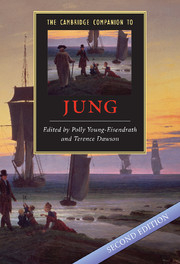Book contents
- Frontmatter
- New developments in the post-Jungian field
- Part I Jung’s Ideas and their Context
- Part II Analytical Psychology in Practice
- Part III Analytical Psychology in Society
- 11 Jung and Buddhism: refining the dialogue
- 12 A Jungian analysis of Homer’s Odysseus
- 13 Literary criticism and analytical psychology
- 14 Jung and politics
- 15 Jung and religion: the opposing self
- Index
11 - Jung and Buddhism: refining the dialogue
from Part III - Analytical Psychology in Society
Published online by Cambridge University Press: 28 June 2008
- Frontmatter
- New developments in the post-Jungian field
- Part I Jung’s Ideas and their Context
- Part II Analytical Psychology in Practice
- Part III Analytical Psychology in Society
- 11 Jung and Buddhism: refining the dialogue
- 12 A Jungian analysis of Homer’s Odysseus
- 13 Literary criticism and analytical psychology
- 14 Jung and politics
- 15 Jung and religion: the opposing self
- Index
Summary
“The goal in psychotherapy is exactly the same as in Buddhism.” (C. G. Jung) “The most conspicuous difference between Buddhism and Western psychology is perhaps found in their respective treatments of the concept of “self.” In Western psychology, the existence of a “self” is generally affirmed; Buddhism denies the existence of an enduring “self” and substitutes instead the concept of anatman, “no-self.”” (Masao Abe) / C. G. Jung was the first psychoanalyst to pay close and serious attention to Buddhism and to write commentary on his own careful readings of Buddhist texts. In 1992, Meckel and Moore published a comprehensive collection of the English translations of Jung's commentaries - beginning with Jung's 1939 “Foreword” to Suzuki's Introduction to Zen Buddhism (Meckel and Moore, 1992, pp. 11-30). Jung wrote about and commented on writings from Japanese, Tibetan, and Chinese sources. Bringing in both original insights and important questions, Jung's essays formed an early backdrop for various conversations to develop between Western psychology and Buddhist practices. My own training to become a Jungian psychoanalyst began in 1979, eight years after I had formally become a student of Zen Buddhism. I came to my study of psychology in general, and to Jung's psychology in particular, with a background in Buddhist thought and practice. The interaction between the two disciplines has formed a core aspect of my development as a human being and a psychoanalyst for several decades now. While this interaction has been extraordinarily useful, it hasn't always been easy or clear.
- Type
- Chapter
- Information
- The Cambridge Companion to Jung , pp. 235 - 252Publisher: Cambridge University PressPrint publication year: 2008
- 1
- Cited by

